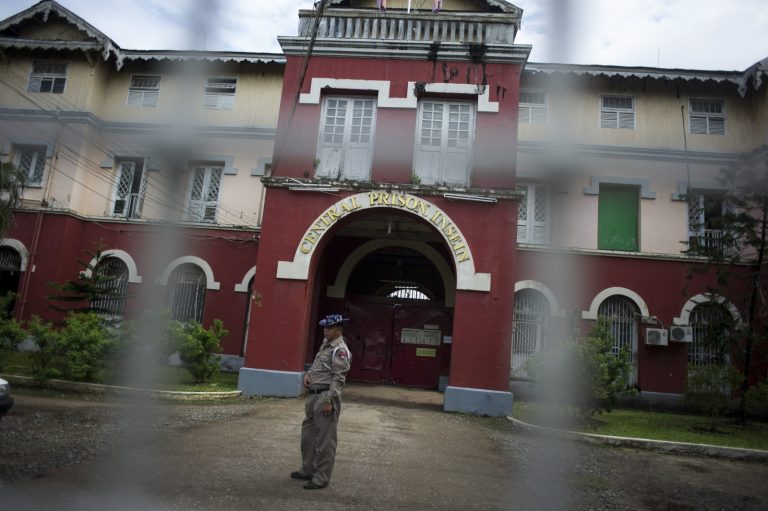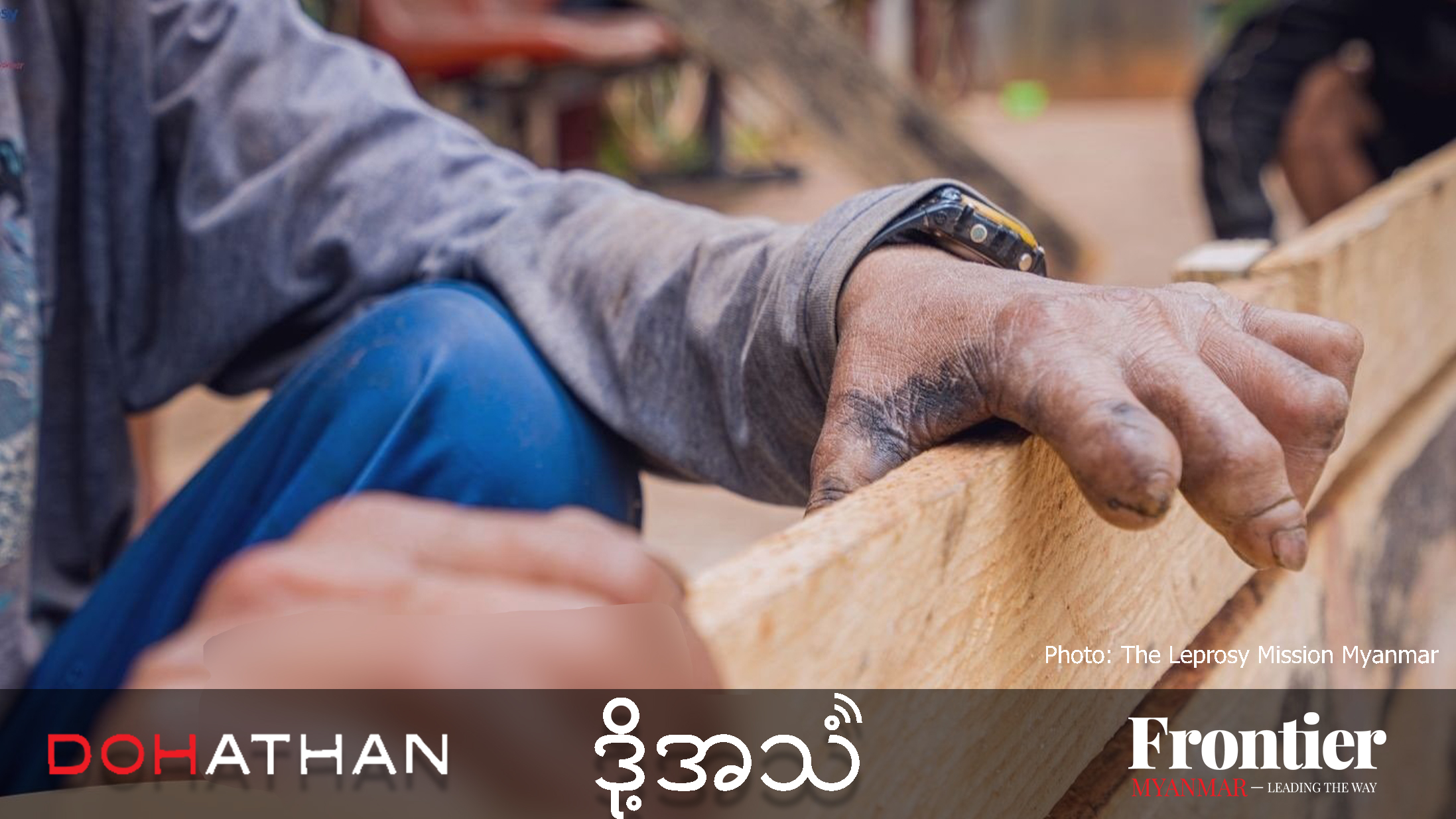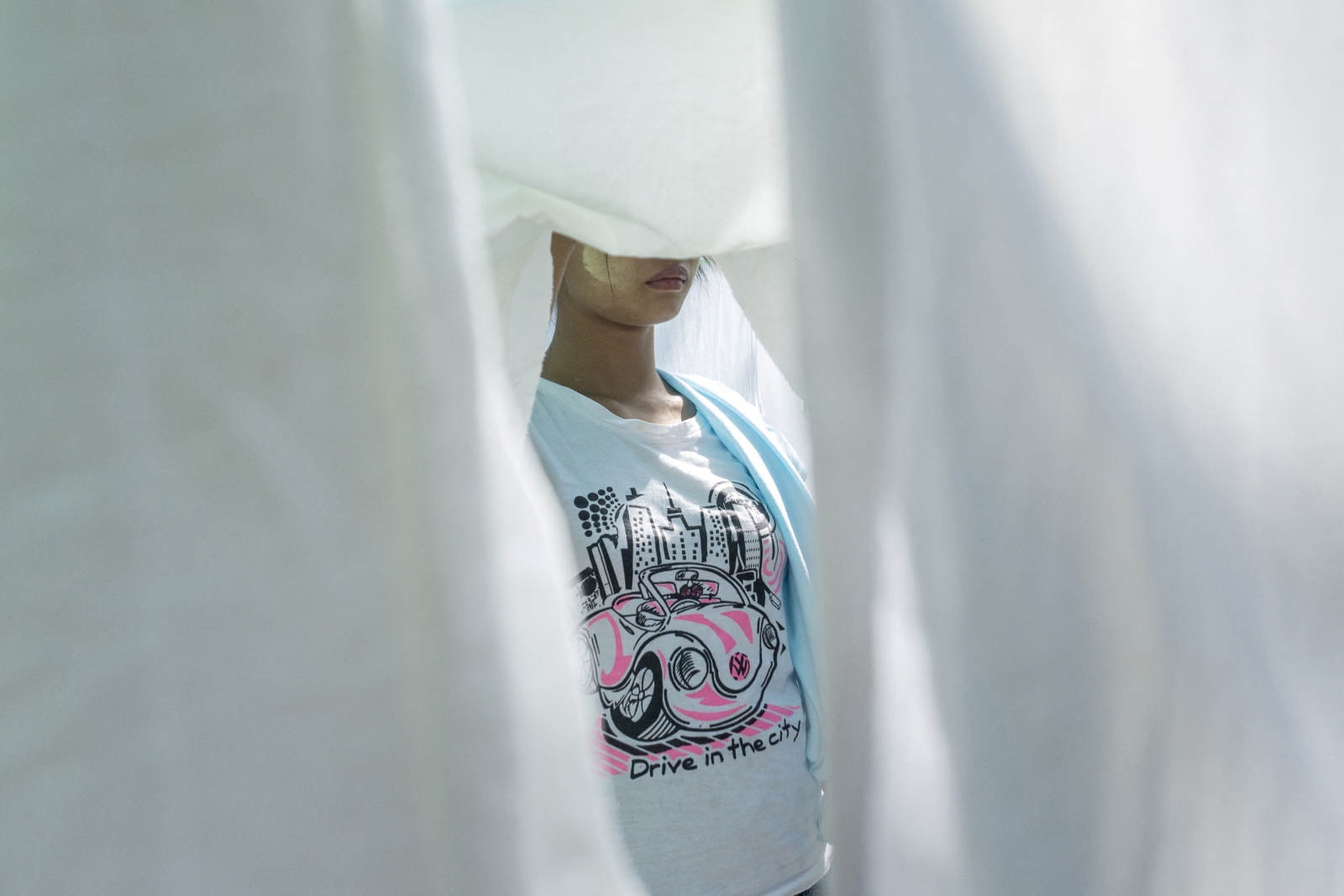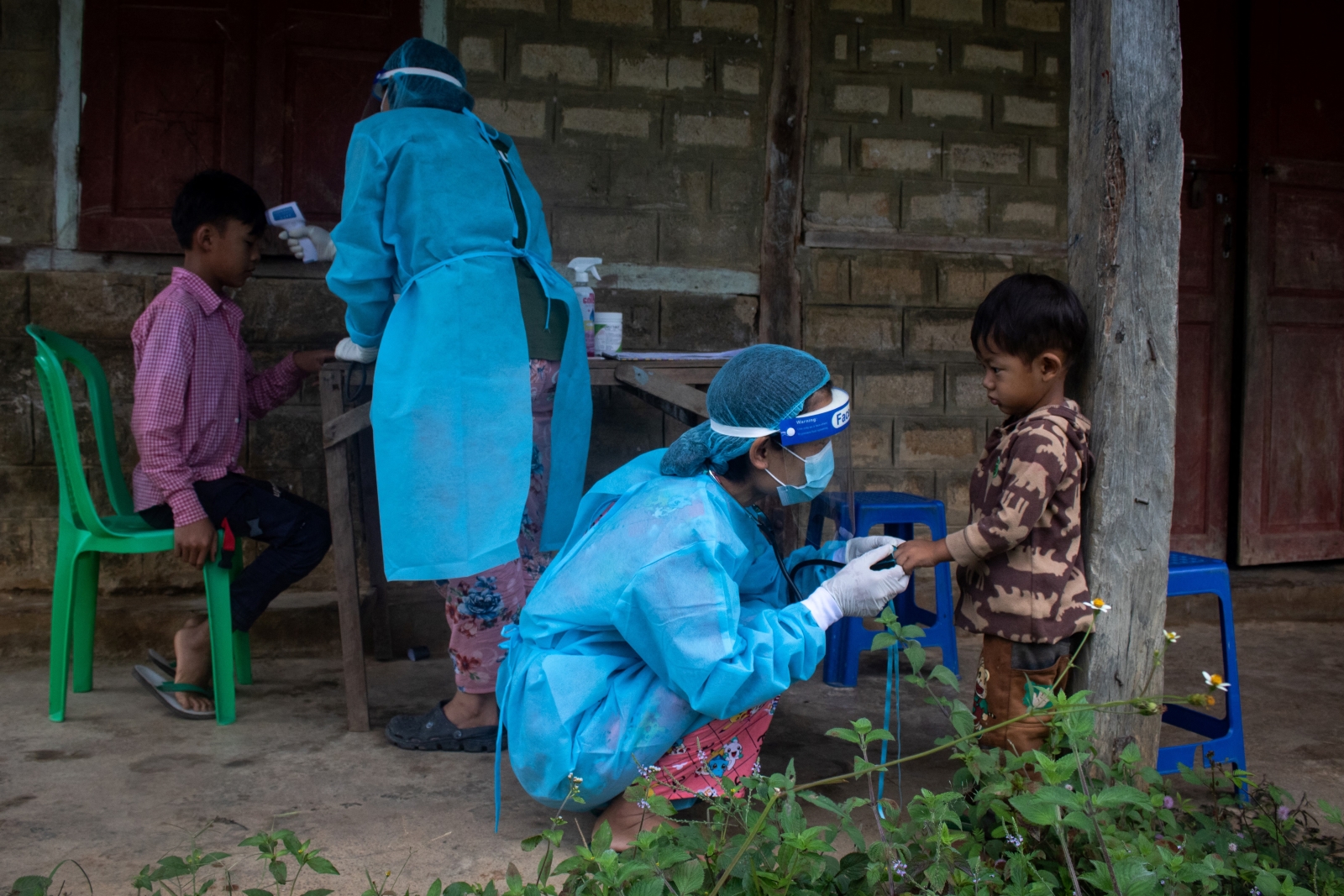Patients have to pay bribes in public hospitals on the brink of collapse for lack of staff and funding, leaving charities struggling to care for the poor while dangerous quacks and charlatans exploit the most vulnerable.
By FRONTIER
When Ma Zin Wai Nwe went to the Danubyu Township Hospital in Ayeyarwady Region to give birth to her first child in May, she was full of apprehension. The 30-year-old knew that Myanmar’s health system had collapsed after the 2021 coup. However, she hadn’t imagined she would go into labour without seeing a doctor.
With only nurses attending to her, she was immensely relieved when she heard her baby girl crying. But then her troubles began when a perineal tear stitched by the nurses became seriously infected. “I was bleeding in pain,” she said.
Zin Wai Nwe was taken to the operating theatre, but no doctor came and it was left to the nurses to perform the surgery on her wound. Her condition worsened and this time she asked a nurse why she had not seen a doctor. The nurse responded that although a doctor was available, he wouldn’t come without inducement.
“She advised me to offer money to the doctor, so my husband went to his office and handed over an envelope with K50,000 (US$25). That evening the doctor showed up at what became my third procedure,” Zin Wai Nwe recounted.
“I didn’t know that I needed to bribe medical staff in a public hospital! Had I known, I would have handed over money at the start rather than risk my life.”
What should have been a three-day stay in hospital turned into 10 days with a total cost of about K800,000 – a vast amount for a low-income rural family like Zin Wai Nwe’s. She had to borrow from a loan shark.
“We had to buy all the medical supplies, even syringes, and pay for the operating room. Then we had to buy drinks and snacks to treat all the on-duty medical staff after my surgeries,” said Zin Wai Nwe. “I went to the public hospital because I couldn’t afford to go private, and now I’m afraid of having a second child.”
The hospital did not respond to requests for comment, but Frontier interviewed 12 patients recently treated in public hospitals in Yangon, Bago and Ayeyarwady regions, as well as in Mon State and the capital, Nay Pyi Taw. All said they had to spend considerable amounts of money on bribes to receive the treatments they needed, and to pay for medicines and other supplies from outside retailers.
An ailing public health system
The military coup and subsequent crisis have inflicted a crippling blow to Myanmar’s public health system. The quasi-civilian government of President U Thein Sein only started offering free medicine to poor patients in 2013 when the healthcare budget rose to 3.9 percent of total government spending from 1.9pc the previous year. Before then all medicines and supplies were charged to patients.
Under the subsequent National League for Democracy administration, which ruled from 2016, the healthcare budget gradually increased, reaching 6.9pc of government spending the year before it was ousted by the coup. The current junta has reversed this trend, with only 4.7pc allocated for the 2023-24 fiscal year starting in April.
Additionally, the whole public sector has been devastated by an exodus of civil servants since the coup, with many joining the Civil Disobedience Movement against the military regime.
Dr Suu Suu* joined the CDM after working as an assistant surgeon at Yangon’s North Okkalapa General Hospital. She told Frontier that staff who stayed in public hospitals now deal with enormous workloads and that nurses only earn K170,000 to K210,000 a month.
While volunteer medics initially tried to plug the gap in public healthcare, they were frequently targeted and arrested by police and soldiers for assisting protesters in the bloody suppression of anti-coup demonstrations in 2021. Many volunteer groups were forced to suspend operations while being hounded in military-controlled courts for allegedly assisting resistance forces.
The CDM Medical Network says about 65,000 healthcare personnel have joined the movement since the coup, out of 110,000 staff counted by the health ministry before the coup. About 40,000 remain on strike, with many of them working in clandestine clinics outside the junta’s control, offering care to some members of the public.
“The health sector was the second biggest [after education] in terms of the numbers that joined the CDM,” Suu Suu said. “Hospitals have so many vacancies the junta cannot fill them. Those remaining have enormous workloads and some have little goodwill left towards patients.”

Suu Suu said the public hospital where she used to work provided medicines and equipment to almost all patients before the coup, only charging those who could afford it.
“Only if the patients were obviously well-off did we make them buy some expensive supplies and use outside labs, because we wanted to reduce the hospital’s burden. But for poor patients, we tried to provide everything free of charge,” she said.
According to Ministry of Health data for 2020, the public health sector then accounted for 86pc of total healthcare services, with 1,152 public hospitals accommodating 56,700 beds.
Corruption, poor treatment and abusive staff were present before the military takeover, but now they are the rule.
In the past patients would often be asked to make a donation to the hospital when discharged. But now patients have to “donate” as soon as they are admitted, according to Suu Suu and patients interviewed by Frontier, with the level of care they receive depending on the size of the donation.
Relatives and carers also have money extorted by hospital workers who are allowed by management to charge for visits to the toilet and for recharging phones.
U Aung Min, a patient of Maubin General Hospital in Ayeyarwady, said he had to pay for all his medical supplies, even gloves for staff.
“A nurse would take blood for tests but then we had to pay to send the samples to private labs nearby. We cannot get anything for free from the public hospitals,” he said. “We were paying while getting mistreated by staff. Nurses were always shouting at us. But we had no choice.”
Frontier called the junta’s Ministry of Health for comment but no one answered.
“Staff at all levels are making money in various ways,” said Ko Aung, whose father was treated in Maubin General Hospital. “The hospital bosses close their eyes and ears to it all.”
The level of neglect sometimes has deadly consequences. Ma Eaindra* said her sister died in Nay Pyi Taw General Hospital last year after medical staff failed to give her proper treatment following a motorcycle accident.
“My sister got serious head injuries and was totally unconscious. The doctor just took an X-ray and told us, ‘nothing will happen and she will regain consciousness’, and they put her in a regular ward instead of an intensive care unit,” she told Frontier.
“When my sister showed serious symptoms, like shaking hands and legs, we went to fetch the on-duty doctor and nurses. No one came. We kept calling them and they told us rudely not to call them. My sister died there after two days,” she said, adding that there was no one to complain to.
Unlicensed doctors and quacks step in
Exploiting this healthcare void, especially in rural and conflict areas, are unlicensed practitioners offering cheaper treatments that often put patients’ lives at risk.
Daw Cho Cho Maw, who lives in Ah Le Su village in Ayeyarwady’s Zalun Township, told Frontier of an unqualified “physician” offering western medicine who had never attended medical school but claims to have learnt under a doctor in Yangon. Many people in the township started visiting him after they stopped going to the village tract and township hospitals because of the costs, she said.
“We all know it would be safer to go to a legal clinic, but to see a government doctor costs around K8,000. The physician in my village charges about K3,000, and his medicines are cheaper,” Cho Cho Maw said.
Worse than this are fraudsters posing as mystical “healers” to take advantage of poor people. Some dress as Buddhist monks or nuns and travel from village to village offering traditional medicine.
Ko Thae Ko from Yonechaung village in Danubyu Township said his ailing father took medicine from a woman purporting to be a nun who came to a monastery in nearby Ngani village, where she treated many people.
“About 100 patients came to her daily because she claimed she used ‘medicine made in the shadow of Buddha and Dhamma’. My father, who couldn’t walk because of a stroke, wanted to be treated by her. We went and she sold us a liquid medicine of mixed herbs. One month later my father passed away,” he said.
The length of time indicates that the death was unrelated, but the treatment may have discouraged the father from seeking out better options.
By this time, the nun had moved on. “She treated the patients at the village monastery for just a week and then disappeared. Monks of the monastery told me that she moves around the country,” Thae Ko said.
A village tract administrator in Danubyu, who asked not to be named for security reasons, told Frontier that it was “impossible” to stop fake healers.
“People believe in them and seek treatment. When patients get better, the healers say it’s thanks to their powers. When patients get worse, they say it’s because they were not chosen by superiors. The sad thing is that people believe them,” he said, “superiors” referring to the supernatural beings that supposedly guide the healers.
Suu Suu, the striking surgeon, said fake doctors will keep exploiting and endangering people as long as public hospitals are unable to provide good and affordable services.
“Uneducated poor people will always be the victims. Under the junta, these kinds of problems will only get worse and there is no remedy,” she said.
Health charities stretched thin
With public hospitals becoming unaffordable for many struggling against the rising cost of living, stagnant wages and job losses, charities providing free healthcare are overwhelmed by the number of patients seeking help.
Moosa A. Madha, president of the Muslim Free Hospital in Yangon, says patient numbers have risen sharply with the collapse of the public healthcare system and the economy.

“We are handling far more patients than a public hospital because it is all free in our hospital – medicines, X-rays, labs and doctor,” he told Frontier.
First established as a dispensary for the poor in 1937, the hospital runs mainly on donations from Muslims. Its 160 beds are always occupied and its 45 doctors and 120 nurses also treat over 200 outpatients daily.
However, charity clinics and hospitals have also been struggling with the rising price of medicines. Many of them need to be imported, meaning that the plunge in the kyat to less than half its pre-coup value has eaten sharply into budgets.
The regime, meanwhile, isn’t making things any easier for these organisations. In October last year it passed the Organisation Registration Law, replacing a 2014 statute and imposing far more draconian restrictions, as well as a prison term of up to three years for running an unregistered organisation.
Ko Thar Oo*, a senior officer in the New Light Volunteering Group in Sagaing Region’s Monywa Township, told Frontier that the junta’s crackdown on civil society has gutted a once-thriving voluntary sector in the area.
“In the past there were about 300 charity and voluntary groups in Monywa, including clinics. Now almost all have disappeared. Only 10 to 15 groups are left after re-registering under the junta’s new law. They are just allowed to transport patients and dead bodies. Apart from that, there is nothing we can do,” he said. “It’s impossible to open a charity clinic here now.”
Meanwhile, charity clinics that still operate often have to turn away patients because of their limited funding and capacities.
Karyakan Myittar Foundation has run a clinic, staffed by three volunteer doctors, every Sunday since 2021 in South Dagon Township in Yangon. At first it treated 25 to 30 patients in each weekly service, but numbers have more than doubled.
“Our current funding is only enough for 70 people, so we have to use a token system,” said Karyakan Myittar founder and Buddhist monk U Kuthala. “Patients queue at 8.00 am and we give them a number. Once we reach 70, we stop and turn the rest away. We are very sorry but we just don’t have enough funds to treat everyone.”
U Tin Oo, an accountant for Karyakan Myittar, said the clinic is urgently seeking donations because, even with the limit on patient numbers, its weekly running costs have jumped from K700,000 to at least K1.5 million.
U Kuthala says people who have lost their savings and their jobs cannot afford to go to private clinics, and he was moved to set up his clinic because he could not bear seeing people buy adulterated cheap medicines sold by street vendors.
Daw Gyi Mya, a 60-year-old with diabetes, relies on Karyakan Myittar because she cannot afford to pay K40,000 a month for the treatment she needs.
“Our family income cannot cover our daily needs with basic commodities going up in price. I think I can only survive as long as this free clinic stays open,” she said.
* indicates the use of a pseudonym for security reasons







